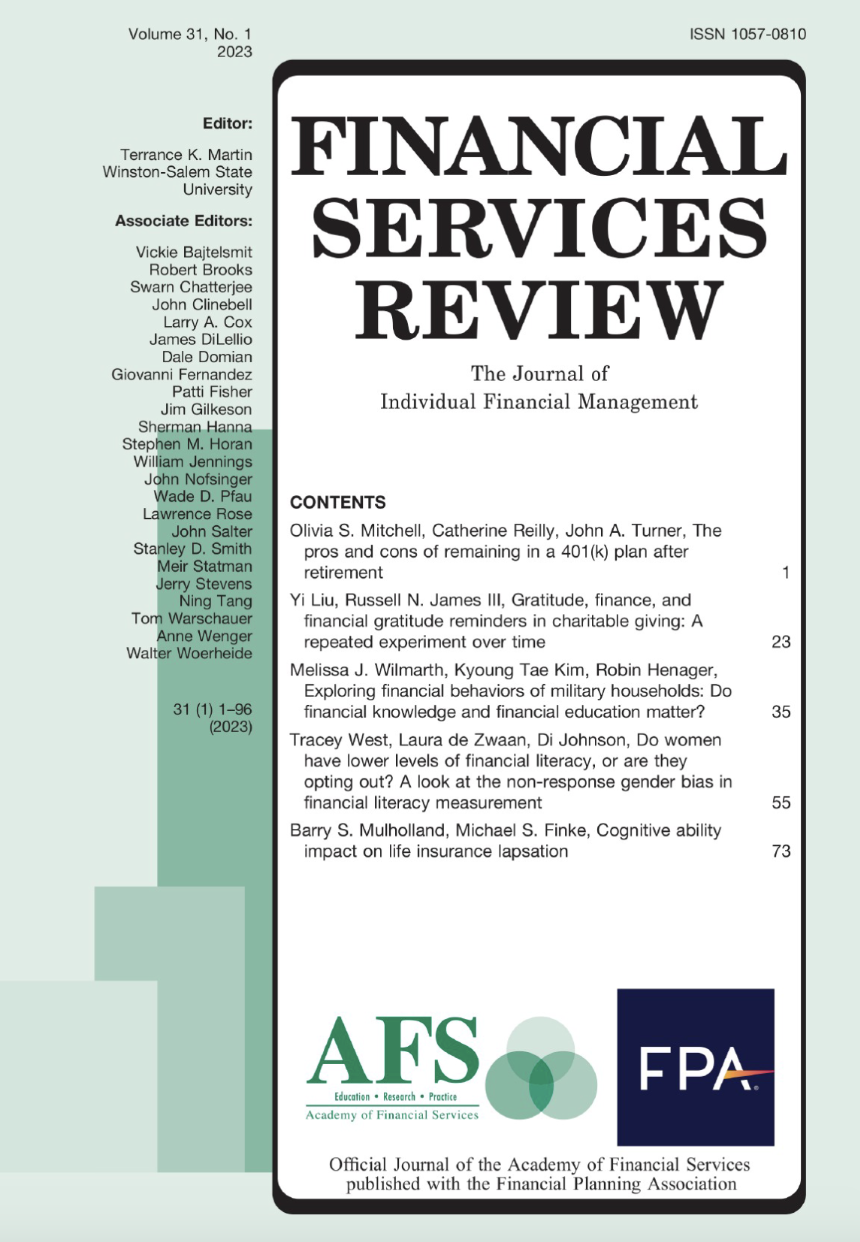Exploring financial behaviors of military households
Do financial knowledge and financial education matter?
DOI:
https://doi.org/10.61190/fsr.v31i1.3193Keywords:
National Financial Capability Study, Military households, Financial behaviors, Financial knowledge, Financial educationAbstract
This study explores short-term and long-term financial behaviors of military and civilian house- holds in the United States. We investigate the role of financial knowledge and financial education on financial behaviors. Using the 2018 National Financial Capability Study (NFCS), results indicated military households had higher financial knowledge scores, greater receipt of financial education, and higher financial behaviors. Multivariate analyses show that objective and subjective financial knowledge were associated positively with short-term and long-term financial behaviors of military and civilian households. Experiencing financial education was positively associated with the long- term behaviors of military households. This study provides insights for policymakers and financial practitioners.
Downloads
Published
How to Cite
Issue
Section
License
Copyright (c) 2023 Kyoung Tae Kim, Melissa J. Wilmarth, Robin Henager

This work is licensed under a Creative Commons Attribution-NonCommercial 4.0 International License.
Author(s) retain copyright and grant the Journal right of first publication with the work simultaneously licensed under a Creative Commons Attribution-NonCommercial 4.0 International License that allows to share the work with an acknowledgment of the work's authorship and initial publication in this Journal.
This license allows the author to remix, tweak, and build upon the original work non-commercially. The new work(s) must be non-commercial and acknowledge the original work.


